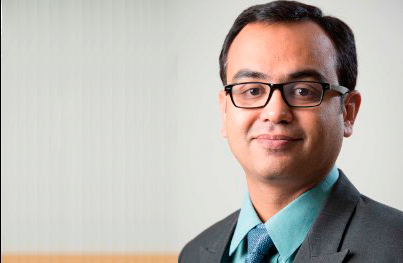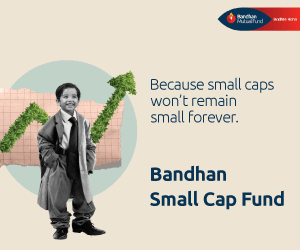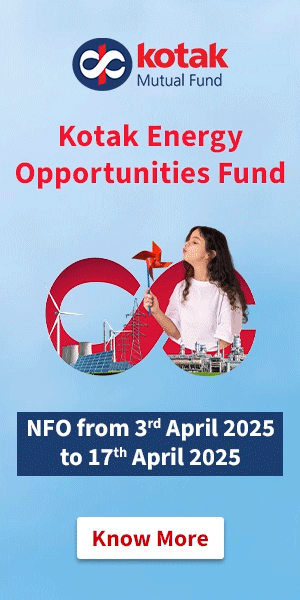The Indian Economy is in a sweet spot
BFSI Industry Interview

Mrinal Singh joined ICICI Prudential AMC in June 2008 and currently manages several funds including ICICI Prudential Value Discovery Fund, ICICI Prudential Midcap Fund, ICICI Prudential Technology Fund and the ICICI Prudential Dividend Yield Fund. With an overall work experience of around 12 years across industries like Financial Services, Auto and IT, Mrinal's core competency lies in portfolio management and sector analysis.
Mrinal is a Bachelor of Engineering and holds a Masters in Business Administration from SP Jain, Mumbai. Prior to joining ICICI Prudential AMC he was with Wipro Ltd and Robert Bosch GmbH.
In an interview with Advisorkhoj on the occasion of the launch of ICICI Prudential India Recovery Fund Series-1, he shared his views on Equity markets, the reforms process initiated by the new Government and how the markets offer tremendous opportunities for making investments in 2015 in order to create wealth in 2018 and 2019.
India's recovery in the offing, on ground of improving macros & robust reforms
The Indian economy is in a sweet spot with lower crude prices, improving macro-fundamentals and a clear visibility in the Government's capital expenditure cycle. As India treads on the path of a gradual but steady recovery, it is a good time to bet on a theme that is likely to benefit the most from this recovery.
What is the rationale for launching the India Recovery Fund Series-1 and why now?
Currently, the macro-economic indicators for India are beginning to show all round improvement, along with increased focus from the Government on new and existing projects, and thrust on reforms. We believe the economy has reached the inflection point and is expected to recover in the future.
This strengthens our conviction in launching ICICI Prudential India Recovery Fund - Series 1, a 3.5 year close ended equity fund that aims to provide long-term capital appreciation by taking exposure in those stocks/sectors that are more levered to the economy and are likely to grow at a faster pace.
While the broad valuations of the market are high, we are in that stage of the market where picking the right stocks will matter more. There are a good many opportunities out there but they have to be identified and invested in early. We believe that investors can make superior returns in this market, but only through good quality investments over the next three-to-five years.
Over the next one or two quarters, the markets could be lacklustre because a lot of the valuations are in the price, but over a three-five year horizon, the markets offer tremendous opportunities. 2015 is the year of making investments in order to create wealth in 2018 and 2019.

What are the indicators you are seeing of the India Recovery commencing?
The macro-economic fundamentals such as the current-account deficit, inflation and lower prices of crude have proved to be a huge boon to India and point towards India’s recovery. Lower prices of crude itself have boosted fiscal growth by a few percentage points. All this can set the stage for the Indian economy to clock one of the highest growth rates in the world in 2016 and 2017.
Given where inflation is now and where it is projected to be in the future, it is imperative to assume the comfort zone of RBI would increase. And we have seen that in the past that an interest rate cut cycle will do a lot of good to the economy.
Another important indicator is the credit growth number which is now falling and is near the single digits and obviously does not show confidence as of now. But the sharp rise in the credit growth numbers that is likely to happen as the investment cycle picks up could be looked at by the market in a positive manner. We tend to look at it as an opportunity.
Typically in a recovery, once interest rates are cut, demand begins to pick up which then leads to an increase in capacity utilization, which later leads companies to make investments in new capacities. These are still early days for many of the indicators, but we are quite positive that the investment cycle will get better going forward.

How do you view the steps taken by the government to boost the investment cycle?
The government has done well to reiterate the fiscal consolidation road map on the one hand, and increasing capital expenditure on the investment cycle on the other. What is different this time is that the government and the public sector are going to kick start the investments. In the budget, there’s over Rs 3.2 lakh crore expected to be invested by the public sector companies. Another Rs 80,000 crore has been allocated to the roads sector in the budget.
This implies a large jump in spending on national highways, rural roads, railways, and rural and urban housing. Once the capex kicks in, the private sector will step in, turning it into a virtuous cycle.In particular, rising expenditure on roads and housing should drive a pick-up in demand for cement, paints and other raw materials. Cascading benefits could boost the loan growth and aid the banking sector.
We are in a sweet spot in the world economy, with only US and India doing well. The rest of the world there are problems. While China is slowing down, Europe has its own issues and Middle East is not doing so well because crude prices are low.
So point is there is a lot of global capital waiting to invest in India. In fact, in the last six nine months apart from foreign investors, we have seen domestic savers giving us money in mutual funds, so capital is always available for the investments, it’s just that it requires a good business idea and opportunity.


This NFO on the theme of India Recovery is also a close-ended equity structure? Why do continue to you believe that a close-ended structure would benefit the investor?
If you look closely at the structure of a closed-end fund, it insulates the fund managers from redemptions in the fund. It also gets the investor interested in an opportunity that is available in the market as it brings in the discipline of time horizon, and of staying invested in equities for a good portion of time.
The window of closed-end funds have been in existence since November 2013. The investor experience has been very good. As the economic growth story gains traction, we believe that the window of good opportunity continues to exist for long term equity investing through closed-end funds as well as open ended funds for investors. They should not miss out on this good opportunity.
Are there any key risks you are concerned about with regards to investing now in the Indian equity market?
On the global front, there is a risk of crude prices spiking back to $90 or $100 per barrel because we benefit immensely out of crude falling as an economy. Besides, that there could be external risks in case of an event in Venezuela or Greece, and markets could react. But, in my view, this could present more of an opportunity, than posing a risk. On the domestic front, we need to keep a close eye on reforms being implemented by the new government.


Mutual Fund investments are subject to market risks, read all scheme related documents carefully.
All data/information in this material is specific to a time and may or may not be relevant in future post issuance of this material. ICICI Prudential Asset Management Company Limited (the AMC) takes no responsibility of updating any data/information in this material from time to time. The AMC (including its affiliates), ICICI Prudential Mutual Fund (the Fund), ICICI Prudential Trust Limited (the Trust) and any of its officers, directors, personnel and employees, shall not liable for any loss, damage of any nature, including but not limited to direct, indirect, punitive, special, exemplary, consequential, as also any loss of profit in any way arising from the use of this material in any manner.
Nothing contained in this document shall be construed to be an investment advise or an assurance of the benefits of investing in the any of the Schemes of the Fund. Sectors/stocks mentioned in the article do not constitute any recommendation and the Fund through its schemes may or may not have any future position in these sectors/stocks. Recipient alone shall be fully responsible for any decision taken on the basis of this document.
Recent Interviews
Fund News
-
RBI Monetary Policy: RBI changes policy stance and lowers rate
Apr 9, 2025 by Axis Mutual Fund
-
Kotak Mahindra Mutual Fund launches Kotak Nifty Top 10 Equal Weight Index Fund
Apr 7, 2025 by Advisorkhoj Team
-
Reciprocal Tariffs: Casting a wider net
Apr 7, 2025 by Axis Mutual Fund
-
Kotak Mahindra Mutual Fund launches Kotak Energy Opportunities Fund
Apr 3, 2025 by Advisorkhoj Team
-
Groww Mutual Fund launches Groww Nifty 500 Momentum 50 ETF FOF
Apr 3, 2025 by Advisorkhoj Team




